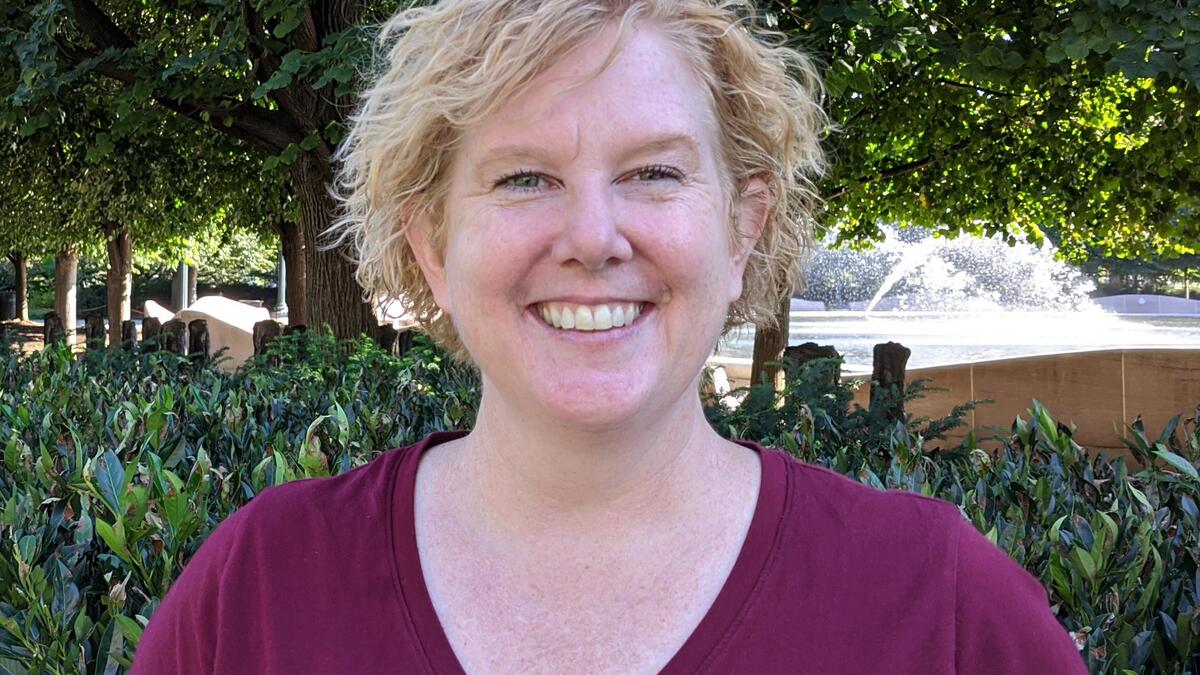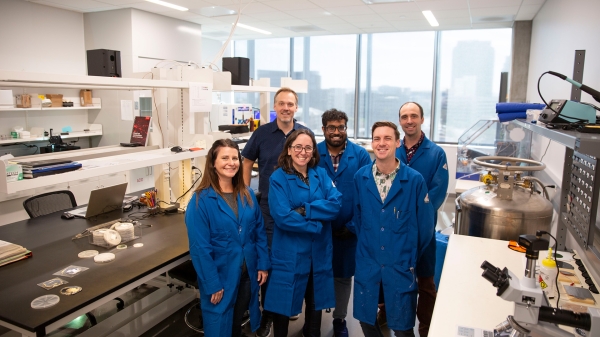ASU master's degree student earns AAAS fellowship researching sustainability in emerging technology

Carole Mars.
Carole Mars was ready for a new challenge. After more than a decade at the Sustainability Consortium, directing sustainability research in manufactured goods supply chains, she decided to move outside her comfort zone.
“I wanted to do something new and different,” said Mars. “I was interested in the ethics of emerging technologies and how they were impacting society.”
Coming from a more traditional science background, including earning her PhD in chemistry, Mars didn’t think she would enjoy policy, let alone make a career out of it. But in the Master of Science and Technology Policy program at Arizona State University's School for the Future of Innovation in Society, she discovered an enthusiasm for the challenges of science and technology policy, and how MSTP teaches students to find solutions.
“The MSTP program looks at how you write policy about new and unknown technologies,” Mars said. “When it comes to policy and sustainability questions about emerging technologies, there aren’t any easy answers.”
Mars has been selected for the American Association for the Advancement of Science (AAAS) Science & Technology Policy Fellowship. The fellowship places scientists and engineers in federal agencies and congressional offices to learn about federal policymaking and implementation. She learned about the fellowship through the Master of Science and Technology Policy program and felt it would be a good opportunity to make a mid-career change and transition to something new.
“Doing something like this never crossed my mind when I started MSTP," Mars said. “I applied for the fellowship because it was an exciting way to move forward in science and technology policy while leveraging my experience in sustainability.”
Mars will support the office of the deputy assistant secretary of defense for Environment, Health, and Operational Safety, Chemical and Material Risk Management Program at the Department of Defense. She will be working on transparency and reporting in chemical and material supply chains, including emerging chemicals whose regulation could globally impact troop readiness.
“This position is really exciting because it's leveraging so much of what I did at the Sustainability Consortium in an entirely new way,” Mars said. “Previously, I would only make recommendations on how to achieve more sustainable supply chains. With this position, I'm moving into implementation.”
During her time at the Sustainability Consortium, Mars focused on electronic waste, the challenges with product takeback programs and how to improve current systems. In collaboration with the Responsible Battery Coalition, she worked on circularity and sustainability in battery supply chains. She wants to continue researching these topics during her fellowship.
“Much of the challenge with recycling and e-waste is the reverse logistics,” Mars said. “We've optimized getting stuff out very effectively, but not getting it back. I want to learn more about how defense supply chains work because they do reverse logistics. If they put something out in the field, they have to bring it back with them.”
Mars is currently in her final semester in the Master of Science and Technology Policy program and working on her applied project, researching lab-grown meat and the challenges of classifying this type of food. She is appreciative that the program helped her find a career path she’s passionate about.
“I will be forever grateful to MSTP for opening up this opportunity,” Mars said. “I would have never found the AAAS fellowship without this program.”
More Science and technology

ASU professor honored with prestigious award for being a cybersecurity trailblazer
At first, he thought it was a drill.On Sept. 11, 2001, Gail-Joon Ahn sat in a conference room in Fort Meade, Maryland.…

Training stellar students to secure semiconductors
In the wetlands of King’s Bay, Georgia, the sail of a nuclear-powered Trident II Submarine laden with sophisticated computer…

ASU startup Crystal Sonic wins Natcast pitch competition
Crystal Sonic, an Arizona State University startup, won first place and $25,000 at the 2024 Natcast Startup Pitch Competition at…